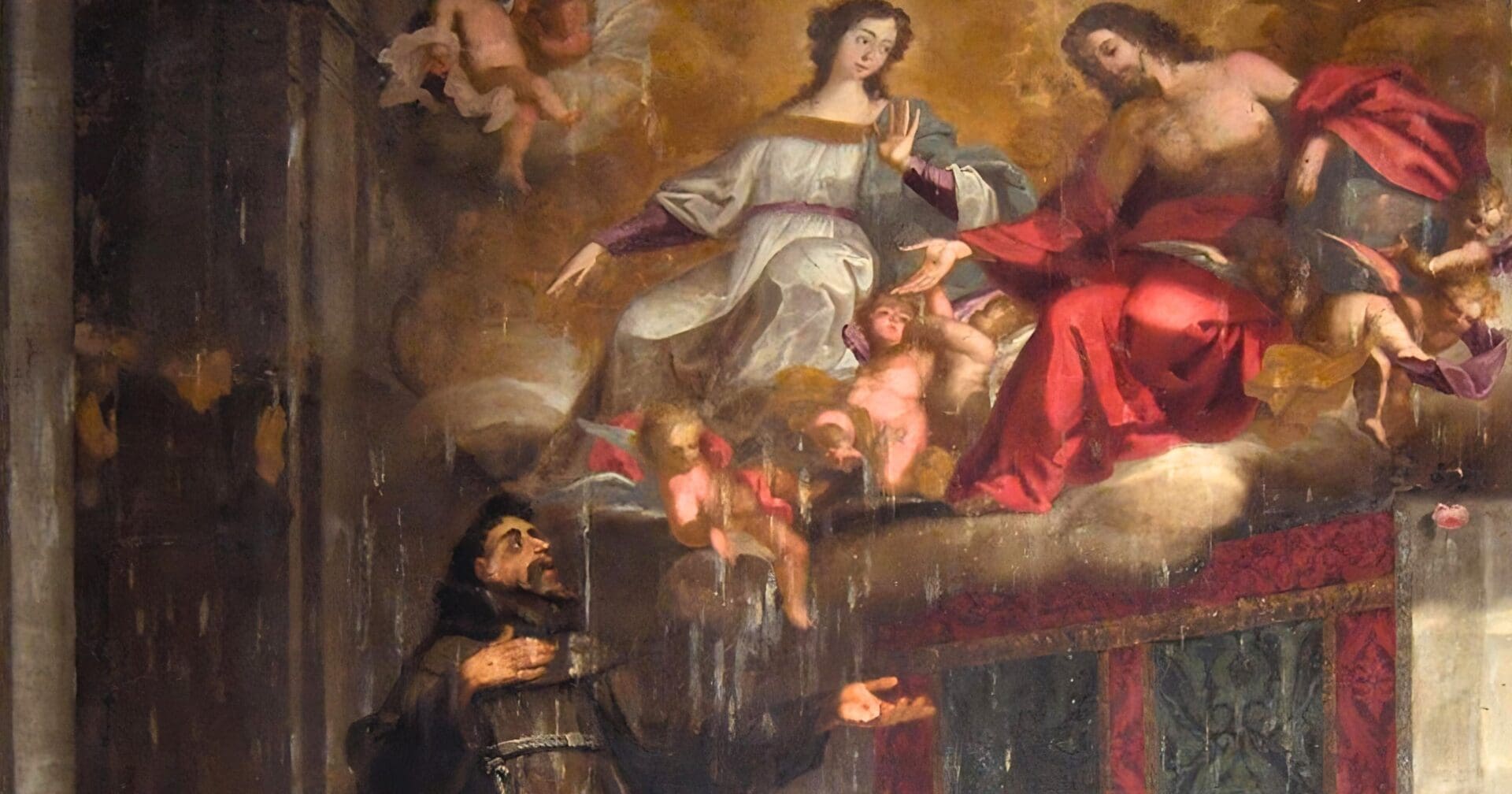Tomorrow, August 2nd, is the Feast of Our Lady of the Angels of the Portiuncula.
Portiuncula is a small church located within the Papal Basilica of Saint Mary of the Angels in Assisi, Italy.
Tradition tells the chapel of Portiuncula was erected in the mid 4th century under Pope Liberius by hermits from the Valley of Josaphat who brought relics from the grave of Mary. It’s name is said to come from the singing of angels frequently heard there.
But by nearly 1,000 years later, it had fallen into disarray and was lying abandoned in the woods.
After a pilgrimage to Rome during the early 13th century, Saint Francis of Assisi had a mystical vision of Christ telling him three times: “Francis, Francis, go and repair My house which, as you can see, is falling into ruins.”
Taking this literally, he restored several churches around the area where he received the vision, including the chapel of Portiuncula. In 1211, he founded the Franciscan order there and the Poor Clares.
When Saint Francis felt his end nearing, he asked to be brought back there and died not 15 yard from the church.
After his death, the spiritual value of the Portiuncula became renowned, Saint Francis calling it a primary source of inspiration and model for all Franciscans.
On August 2nd, any person who visits a Catholic church with the intention of honoring Our Lady of the Angels, recites the Creed, the Our Father, and prays for the Pope’s intentions may receive a plenary indulgence.
The Portiuncula indulgence was the first ever plenary indulgence granted in the Church, a full remission from the temporal punishment of sin. When Saint Francis petitioned Pope Honorius III to confirm this, he was astonished as such an indulgence was entirely unknown up until that time.
After discerning Christ himself had wished for it, he granted Saint Francis’ petition and confirmed the indulgence.
The Catechism explains an indulgence is a remission of the temporal punishment associated with sin.
“An indulgence is a remission before God of the temporal punishment due to sins whose guilt has already been forgiven, which the faithful Christian who is duly disposed gains under certain prescribed conditions through the action of the Church which, as the minister of redemption, dispenses and applies with authority the treasury of the satisfactions of Christ and the saints” – Catechism of the Catholic Church 1471
Learn more about indulgences and the complete requirements to receive them.
Photo credit: Public Domain via Wikimedia Commons

















This is beautiful, but I think the confession time for the indulgence is extended to 20 days, before or after.
Lord have mercy on us all!!